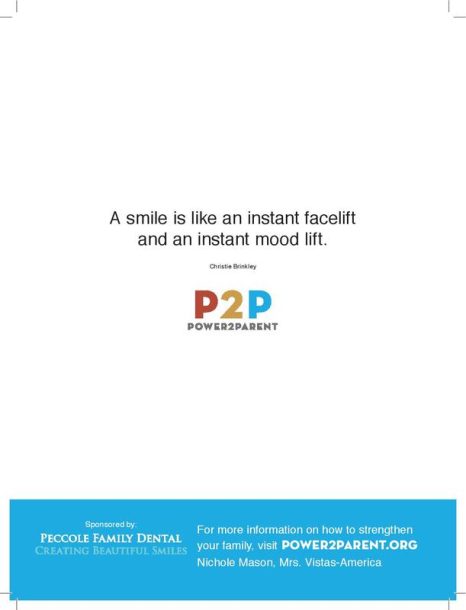
Have you ever tried to keep a straight face, or even frown, when someone smiled at you? Chances are you cracked a smile because that’s what we’re biologically programmed to do. Researchers Ulf Dimberg and Sven Söderkvist in the Journal of Nonverbal Behavior, March 2011 found that we are programmed to imitate the behavior we see. So, when we see another person smile, our biological response is to smile.
How significant can a smile be? According to Ron Gutman in his book, Smile: The Astonishing Powers of a Simple Act, “[British] researchers found that one smile can be as pleasurable and stimulating as up to 2,000 bars of chocolate.” These same researchers measured brain activity to see what amount of money it would take to generate the same level of brain stimulation as one smile. They found that it took a person receiving $25,000 to match the same level of pleasure from one rewarding smile! Smiling can also help us reduce stress, lower blood pressure and makes us appear more likable and courteous.
So, it turns out, one of the best, easiest, fastest ways to improve our homes and families is to smile more. It’s calorie-free, cost-free, takes up no space and is with us all the time. We have the power to create feelings of joy in ourselves and others by the simple act of smiling. If we want to feel better ourselves we should smile. If we want our children to feel better and be happier, we should smile at them. Since they’re biologically conditioned to mimic what they see, we’ll trigger a positive feedback loop in them that can truly help us to raise happy children.